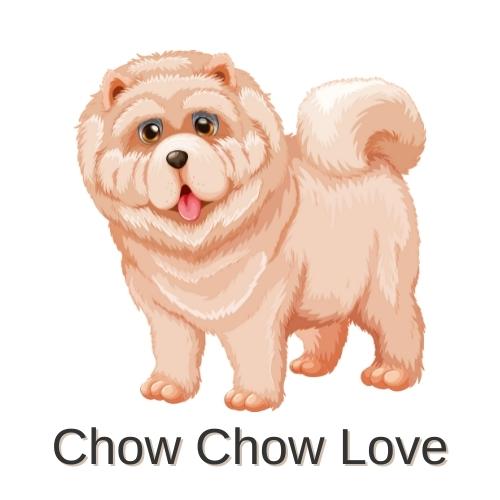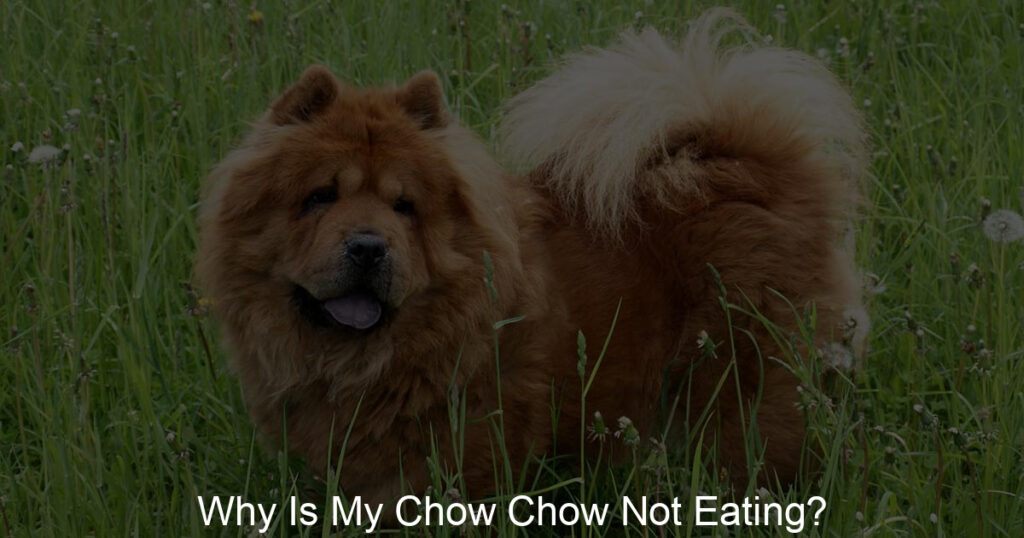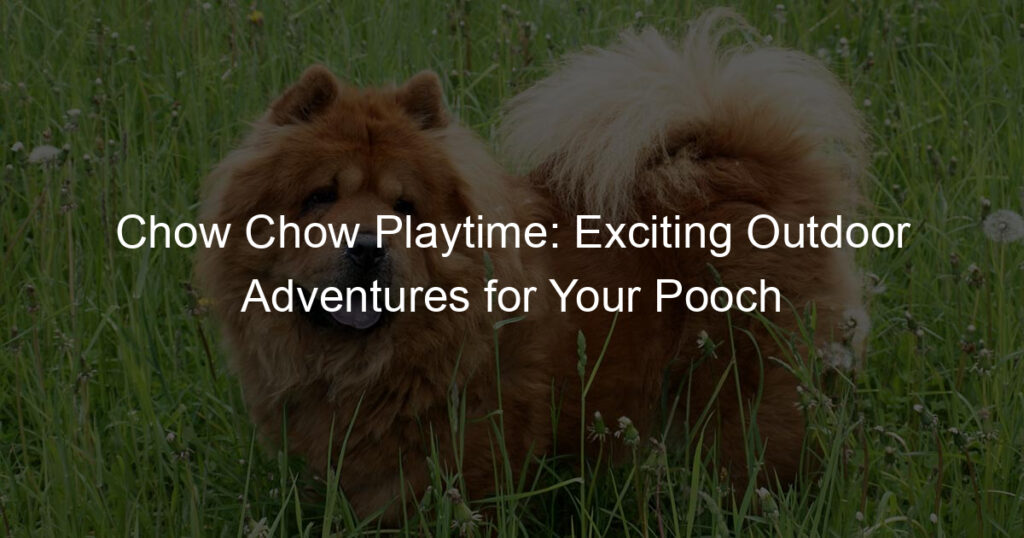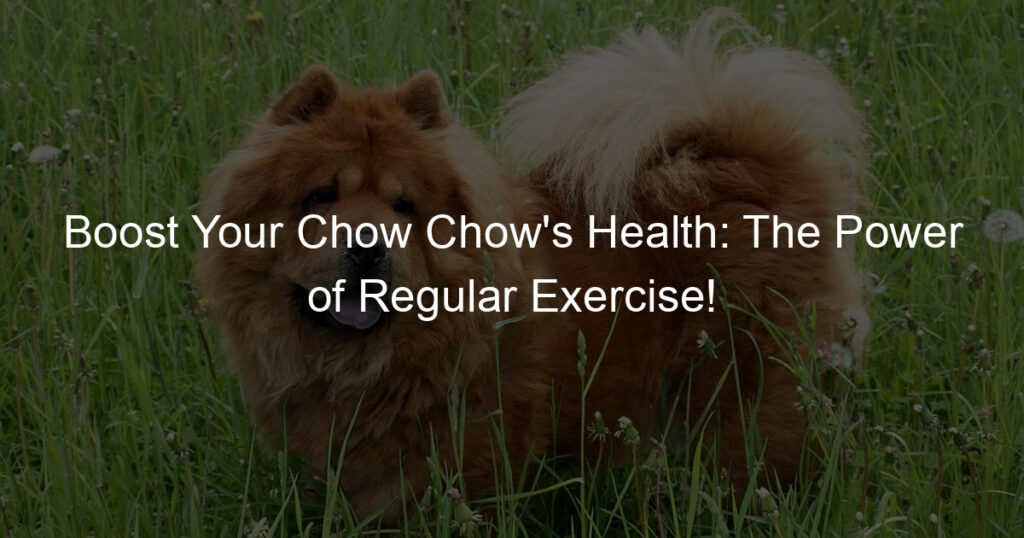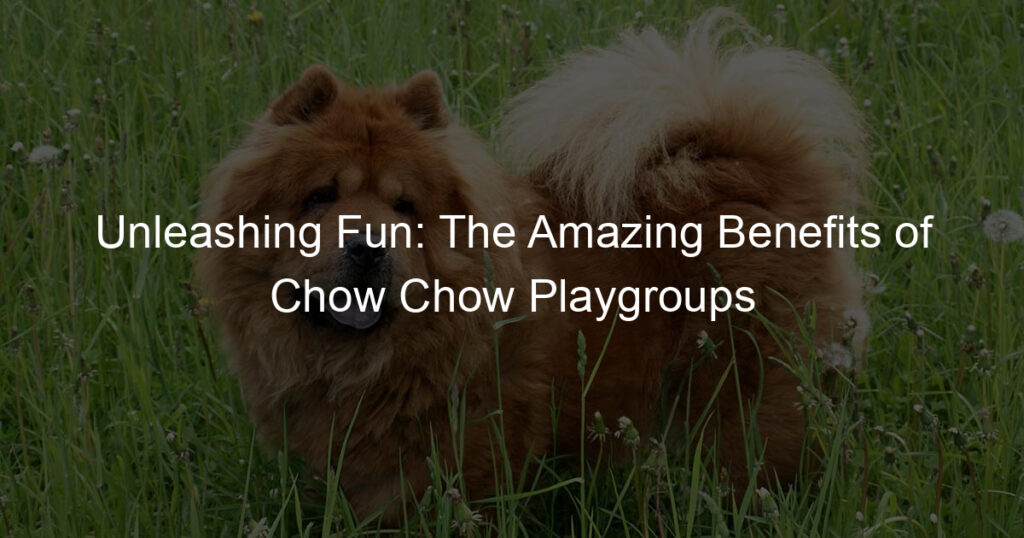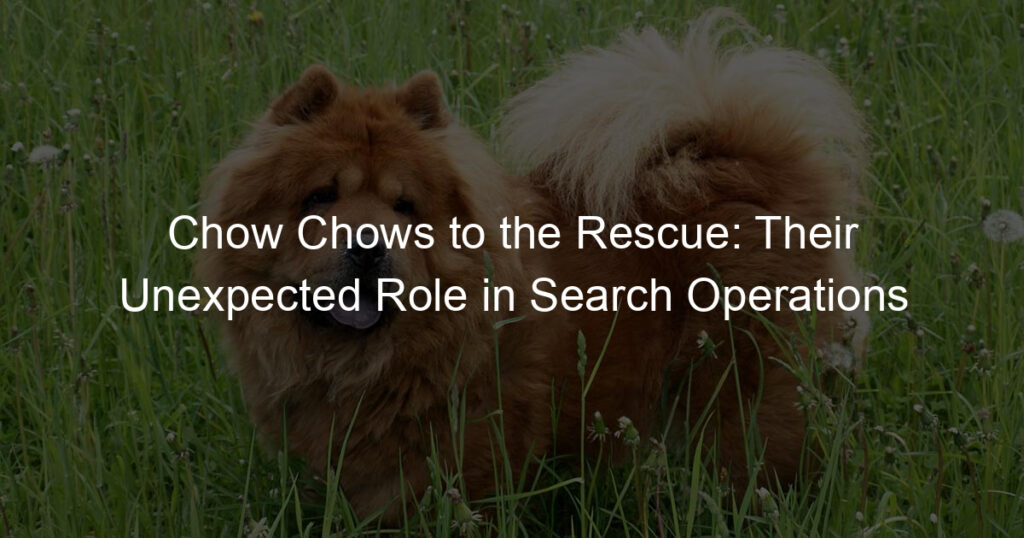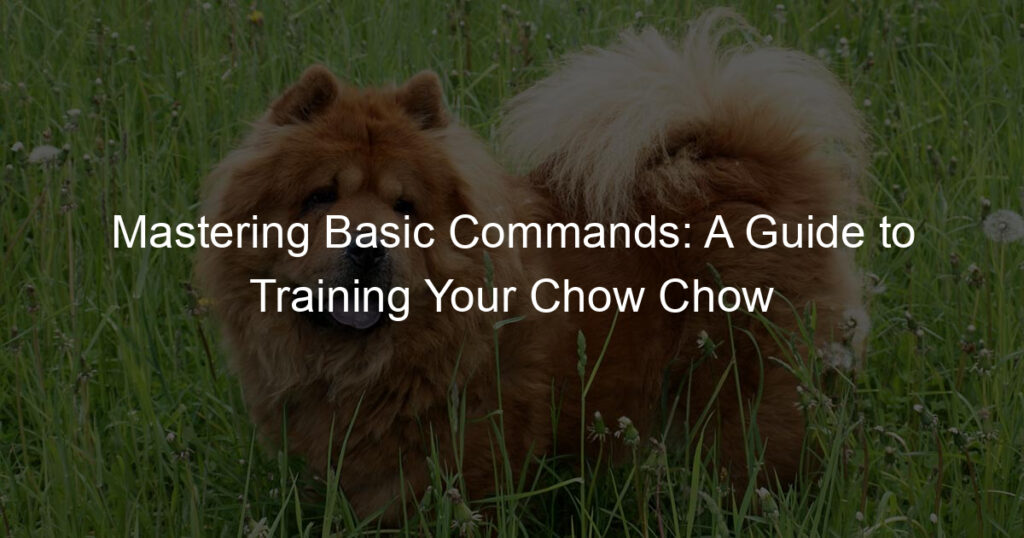It’s always concerning when your beloved Chow Chow suddenly stops eating, leaving you to wonder why this is happening.
Understanding your Chow Chow’s eating habits and recognizing common reasons for a loss of appetite can help you address the issue and get the answer to why is my Chow Chow not eating.
Various factors might affect your Chow Chow’s appetite, ranging from medical issues to psychological factors.
Proactively identifying signs that your Chow Chow is not eating is crucial to promptly address any underlying problems that could be causing discomfort or even serious health issues.
Key Takeaways
- Understand your Chow Chow’s eating habits and identify common reasons for a loss of appetite
- Recognize signs that may indicate possible health or psychological issues affecting your dog’s appetite
- Learn ways to encourage your Chow Chow to eat and when to consult a veterinarian for further evaluation
Understanding Chow Chow’s Eating Habit
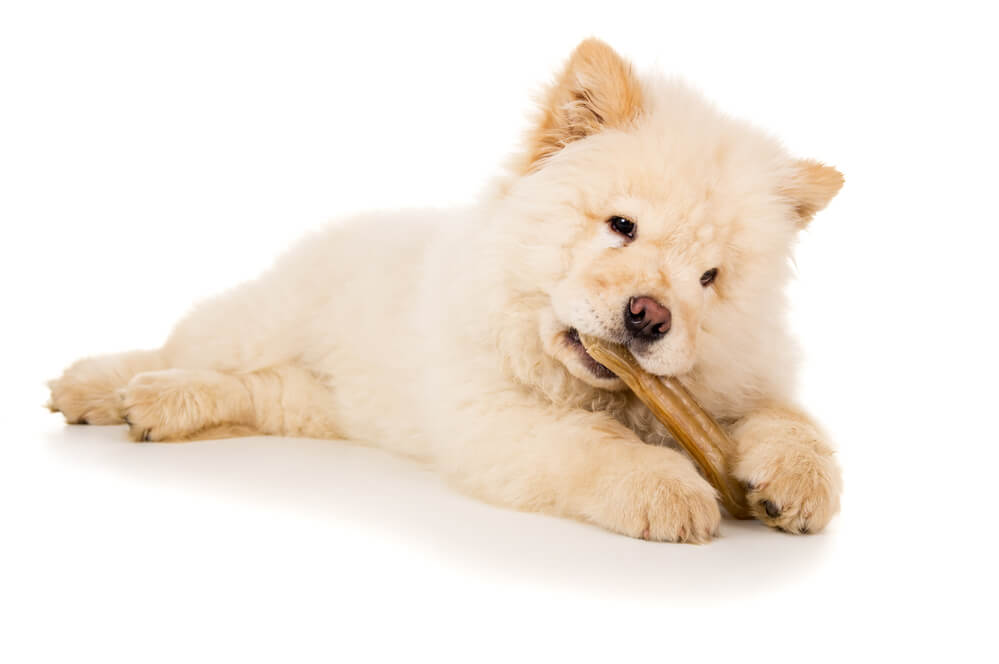
A Chow Chow’s eating habit might have occasional phases where they don’t eat as much. However, if you notice a sudden and drastic decrease in their appetite, it could indicate a health issue.
To understand why your Chow Chow is not eating, observe their behavior closely and consult your vet for professional advice if needed.
It is important to recognize that Chow Chows are not known for being particularly food-motivated or eager to please. Therefore, their eating habits might not always follow a routine like other dogs.
It can be helpful to set boundaries and maintain a consistent feeding schedule to encourage good eating habits.
One reason your Chow Chow might not be eating is due to a condition called pica. Pica can cause dogs to eat strange things like grass, poop, rocks, or dirt.
This can be caused by boredom, nutritional deficiencies, and behavioral issues like stress and anxiety, or it might be a natural tendency for some dogs.
If your Chow Chow is experiencing diarrhea or vomiting in conjunction with a lack of appetite, this could be a sign of gastrointestinal issues. In this case, it may be helpful to use a multi-strain probiotic to help their digestive system recover.
It’s essential to monitor your Chow Chow’s overall health to determine if an underlying health problem might be affecting their appetite.
Chow Chow’s eating habits require observation and patience. Be aware that occasional fluctuations in appetite might be normal for this breed but do keep an eye on any sudden changes or accompanying symptoms.
If you’re concerned about your Chow Chow’s eating habits, consult with a veterinarian for a professional evaluation.
Common Reasons for Loss of Appetite
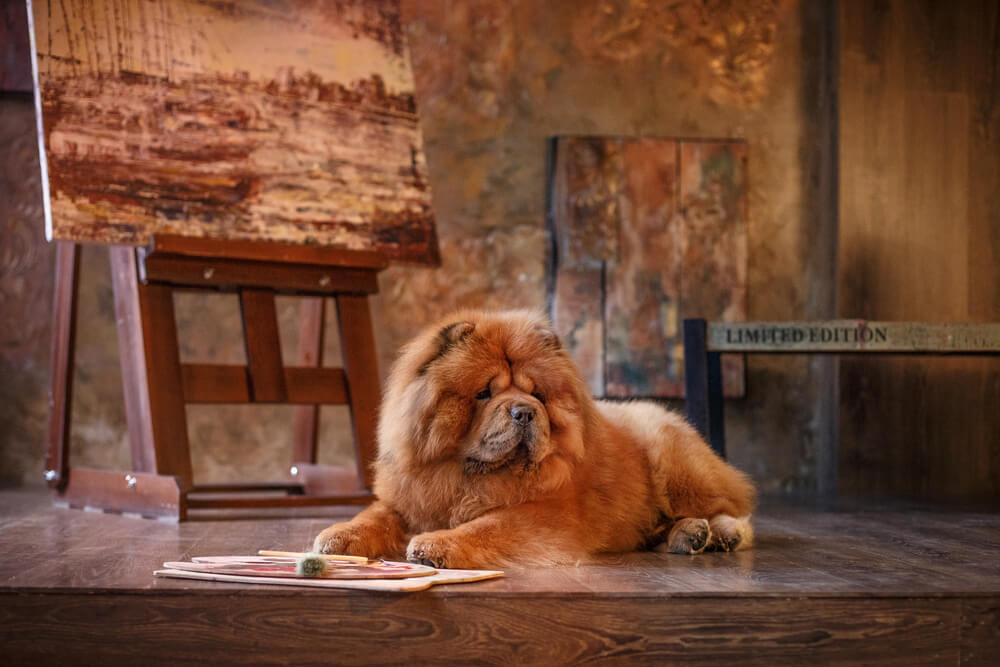
Sometimes, your Chow Chow may experience a loss of appetite. This can be concerning, but understanding the common reasons for this behavior can help you determine the appropriate course of action.
Medical Issues: Various medical issues can cause your Chow Chow to lose its appetite. Oral diseases like stomatitis or gingivitis, dental problems such as fractured teeth or abscesses, gastrointestinal issues like intestinal parasites or infections, or other illnesses such as heart disease and cancer can all affect your dog’s willingness to eat.
Stress or Anxiety: Chow Chows, like humans, can experience stress or anxiety, which may lead them to lose their appetite. Moving to a new home, changes in routine, or the addition of a new family member can cause your dog to feel unsettled and result in a decreased appetite.
Environmental Factors: The environment can also impact your Chow Chow’s eating habits. Extreme temperatures, lack of proper exercise, or an inadequate diet can all contribute to your dog not eating. Make sure that your Chow Chow is kept in a comfortable environment and is provided with a well-balanced diet.
Picky Eater: Some Chow Chows can just be picky eaters. They may not like the taste or texture of certain foods. If you suspect this may be the case, try offering a different type of food or adding a small amount of wet dog food to their dry kibble to encourage them to eat.
Remember to always monitor your Chow Chow’s eating habits, weight, and overall health.
If the loss of appetite persists and you are concerned for your dog’s well-being, consulting with a veterinarian will provide you with the best guidance on how to help your furry friend.
Signs Your Chow Chow Is Not Eating
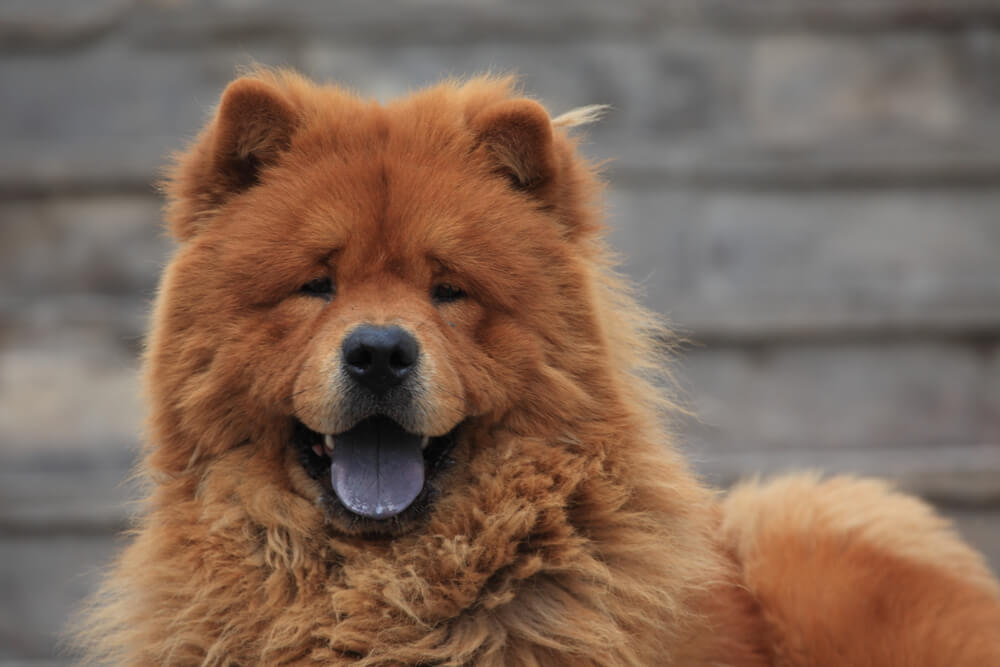
It’s essential to keep an eye on your Chow Chow’s eating habits to ensure their health and well-being. Here are some signs that indicate your Chow Chow might not be eating properly:
- Empty food bowl: If you notice your Chow Chow’s food bowl remains full or barely touched after mealtime, it’s a clear indication that they are not eating the food you provide.
- Weight loss: A noticeable decrease in your Chow Chow’s weight could mean they are not consuming enough food to maintain their energy and overall health.
- Lethargy: When your Chow Chow is not eating well, they may become less energetic and show signs of fatigue, as their body lacks the essential nutrients required for an active lifestyle.
- Refusal of treats: If your Chow Chow starts to decline treats that they usually love, this could be a sign that something is affecting their appetite.
- Changes in behavior: A sudden change in your Chow Chow’s mood or behavior could also be a sign that they are not feeling well, which may be due to a lack of proper nourishment.
If you notice any of these signs, it’s important to consult a veterinarian or try implementing solutions to encourage your Chow Chow to eat. Possible reasons for such a situation could range from medical issues like dental problems, gastrointestinal issues, or other illnesses to stress or anxiety.
Pay attention to your dog’s needs, and make sure to provide them with a healthy, balanced diet to maintain their overall health.
Why Is My Chow Chow Not Eating?
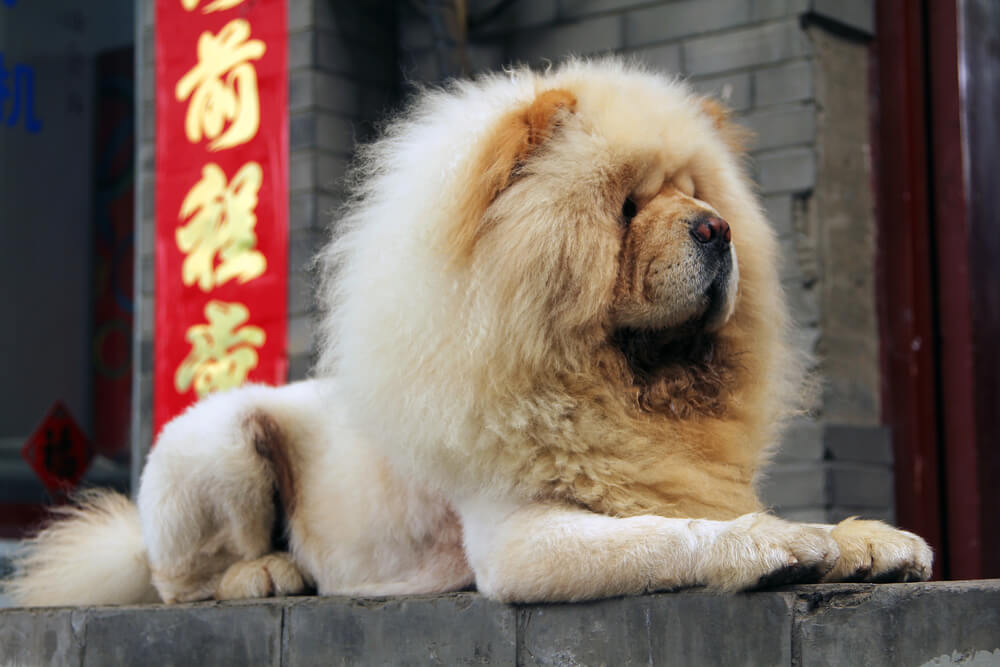
Changes in Eating Patterns
There could be several factors contributing to your Chow Chow’s change in eating patterns. Medical issues might be the cause, such as oral diseases like stomatitis or gingivitis, dental problems like fractured teeth or abscesses, or gastrointestinal issues like intestinal parasites or infections.
Keep an eye on your dog’s behavior and consult a veterinarian if you notice any of these symptoms.
Noticeable Weight Loss
If your Chow Chow is not eating and has experienced noticeable weight loss, this might indicate a more serious underlying health issue. A loss of appetite could be a sign of heart disease, cancer, or other illnesses.
It is essential to monitor your Chow Chow’s weight and reach out to a veterinarian if you notice any sudden or drastic changes.
Lethargy and Fatigue
Another sign that something might be wrong with your Chow Chow is lethargy and fatigue. If your dog is not eating and appears to be tired or lacking energy, they might be feeling unwell due to an illness or infection.
Keep track of your pet’s energy levels and consult a veterinarian if you notice any unusual changes in their behavior or activity. Remember, it’s essential to pay close attention to your Chow Chow’s eating habits, weight, and energy levels to identify any potential health concerns early.
If you notice any of these signs, consult a veterinarian to determine the underlying issue and provide the necessary treatment to keep your Chow Chow healthy and happy.
Possible Health Issues
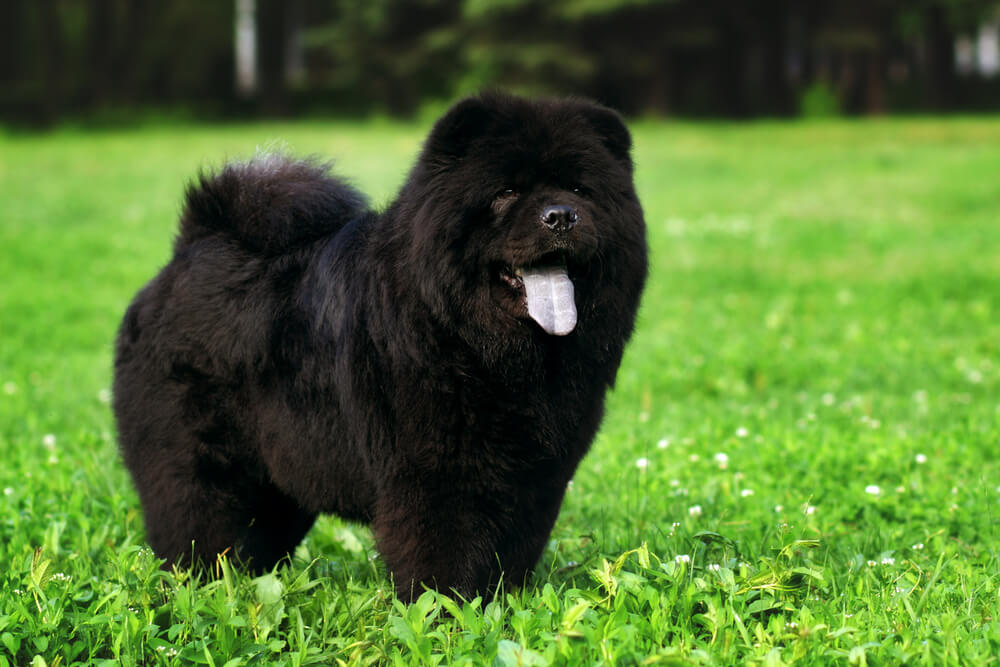
Your Chow Chow might not be eating due to various health issues. One common concern is oral diseases such as stomatitis or gingivitis, which can cause discomfort and pain while eating.
Additionally, dental problems like fractured teeth or abscesses might affect your dog’s appetite as well.
Another health issue could be gastrointestinal problems like intestinal parasites or infections. These can disrupt your Chow Chow’s digestive system, leading to loss of appetite. Other underlying illnesses, such as heart disease and cancer, may also contribute to a change in their eating habits.
Hypothyroidism is a health issue that is common in Chow Chows. This condition occurs when the thyroid gland underproduces essential hormones.
Symptoms of hypothyroidism include weight gain, lethargy, hair loss, and intolerance to colds. Regular blood tests can diagnose this condition, and daily medication can manage it effectively.
If you notice changes in your Chow Chow’s eating habits, it’s essential to consult with a veterinarian to determine the cause of the issue.
A professional diagnosis ensures you receive the right guidance and treatment for your dog’s specific health concern.
Why Is My Chow Chow Not Eating?
Dental Problems
Your Chow Chow might not be eating due to dental problems such as fractured teeth, abscesses, or oral diseases like stomatitis and gingivitis. These conditions can cause pain and discomfort while eating, leading to a loss of appetite.
Regularly checking your dog’s mouth for any signs of dental issues and scheduling routine veterinary dental care can help prevent and treat these problems.
Digestive Disorders
Digestive disorders like intestinal parasites, infections, or blockages could also be the reason your Chow Chow is not eating. These issues can interfere with your pet’s ability to digest food properly and may cause nausea, vomiting, or abdominal pain.
If your Chow Chow shows persistent symptoms of a digestive disorder, it’s essential to visit a veterinarian for a diagnosis and appropriate treatment.
Chronic Disease
If your Chow Chow’s lack of appetite continues or is accompanied by other symptoms like lethargy, weight loss, or vomiting, it could be indicative of a more serious, chronic disease such as heart disease or cancer. These conditions can affect your dog’s overall well-being and energy levels, making them less interested in food.
Consulting with your veterinarian can help provide necessary intervention, treatment, and care for your pet.
Psychological Factors
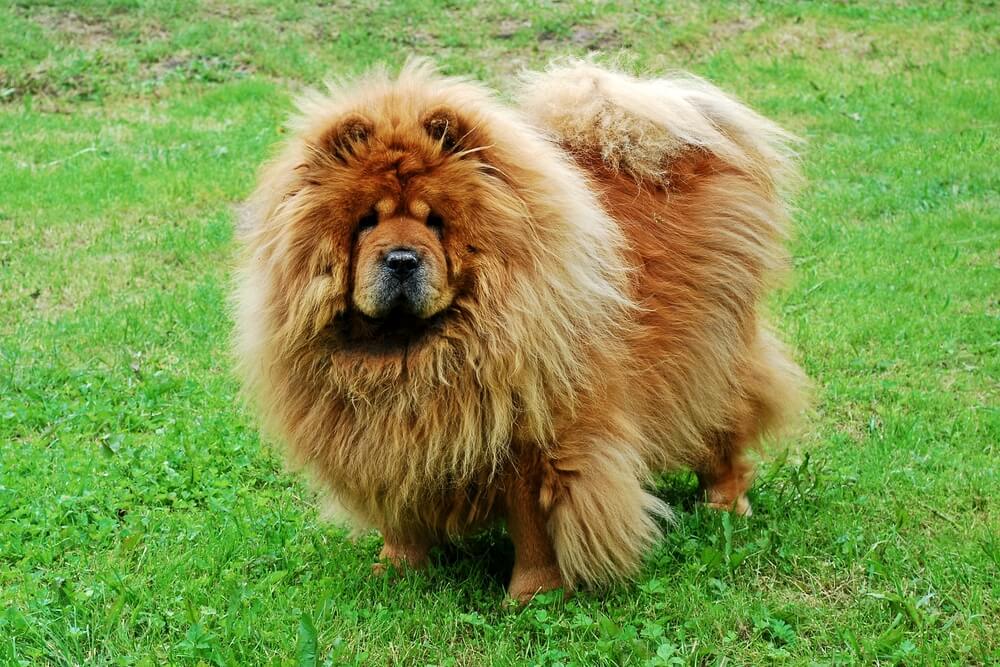
Sometimes, a Chow Chow might not eat due to certain psychological factors affecting their behavior. It is crucial for you as a Chow Chow owner to be aware of these factors and address them, if necessary.
Stress and anxiety can play a significant role in your dog’s appetite. A change in environment, such as moving to a new home or the addition of a new family member, can cause a Chow Chow to feel uneasy, leading to a reduced appetite.
Be patient with your dog during these transitions and provide comfort, reassurance, and consistency in their routine.
Boredom can also be a reason for a Chow Chow not eating. If your dog finds their food uninteresting, they may be less inclined to eat it.
You can try offering a variety of textures and flavors, incorporating healthy human foods, or using puzzle feeders and slow feeders to make mealtime more engaging and fun for your pet.
Additionally, some dogs can develop food anxiety, which is a condition where they become tense or anxious when thinking about or deciding what to eat. This can create a physiological reaction called the “fight or flight” response, causing symptoms like rapid heartbeat and stomach-churning, making eating difficult for your dog.
If you suspect that food anxiety might be an issue, you may want to consult a specialist, such as a veterinarian or a veterinary behaviorist, for guidance on how to help your dog overcome this challenge.
Understanding the psychological factors affecting your Chow Chow’s eating habits is key to helping them maintain a healthy diet.
Offering support and finding ways to make mealtime more enjoyable can significantly impact your dog’s overall well-being.
Why Is My Chow Chow Not Eating?
Change in Environment
If you’ve recently moved or made changes to your home, it’s possible that your Chow Chow is having a difficult time adjusting to the new environment. Dogs can be sensitive to alterations in their living space, so it’s essential to give them time to get comfortable with their new surroundings.
You can help ease the transition by keeping their routine consistent and offering their favorite toys or bedding during this time.
Stress or Anxiety
Chow Chows can be prone to stress and anxiety, which may result in a decreased appetite. Common sources of stress in dogs can include separation anxiety, loud noises, and conflict with other animals in the household.
To help alleviate your dog’s stress, you may want to consider implementing the following strategies:
- Regular exercise: Engage your Chow Chow in daily physical activities like walks or play sessions. This helps them release built-up energy and reduces stress levels.
- Calming aids: Products like calming collars, pheromone diffusers, or supplements can assist in reducing anxiety in your pet. Always consult a veterinarian before introducing a new supplement to your dog’s routine.
Remember, if your Chow Chow’s loss of appetite persists or is accompanied by other symptoms such as lethargy or vomiting, it’s crucial to consult a veterinarian, as this could be a sign of underlying medical issues such as dental problems, gastrointestinal issues, or other illnesses.
How to Encourage Your Chow Chow to Eat
Sometimes, your Chow Chow might refuse to eat. First, you need to rule out any medical or environmental causes for this behavior. Consult a vet, and make sure you haven’t made any recent changes to their diet or surroundings.
If all external factors have been ruled out, here are some strategies to encourage your Chow Chow to eat.
One way to encourage your dog to eat is by making their food more appealing. You can experiment with different types of dog food or mix in some boiled chicken breast and rice as a bland meal option. Gradually reintroduce their regular food after a few days of eating the bland mixture.
When transitioning to a new food, always do it slowly, mixing in small amounts of the new food with the old to avoid upsetting your Chow Chow’s stomach further.
Another strategy to entice your Chow Chow to eat is to use food additives or flavor enhancers. These can be added to their normal kibble to make it more appetizing. Some options include low-sodium chicken or beef broth, a small amount of canned wet food, or even a sprinkle of grated cheese.
Always use additives in moderation to maintain a balanced diet.
You can also encourage your Chow Chow to eat by creating a consistent feeding routine. Feed your dog at the same times each day, and remove any uneaten food after a certain period (usually 15-20 minutes).
This will help to establish a sense of structure and predictability around mealtime, making it easier for your dog to know when it’s time to eat.
Creating a stress-free environment during mealtime can also be beneficial for your Chow Chow. Make sure their feeding area is clean, quiet, and comfortable, free from loud noises or distractions.
If your dog is easily bothered by other pets or people in the house, consider feeding them in a separate area where they can eat in peace.
If your Chow Chow continues to struggle with eating or experiences other symptoms like vomiting, diarrhea, or weight loss, consult your vet for further guidance.
Why Is My Chow Chow Not Eating?
Modify the Diet
Sometimes, the problem with your Chow Chow not eating could be due to their diet. It’s important to ensure that you’re providing your dog with a well-balanced, high-quality diet that meets their specific needs.
Consider transitioning to a different type of food or consulting with your veterinarian to identify any possible allergies or sensitivities. You might also want to add a little variety to their meals by incorporating healthy treats, such as cooked chicken or vegetables, in moderation.
Create a Feeding Schedule
Consistency is key when it comes to feeding your Chow Chow. Establish a daily feeding schedule with designated meal times, ensuring that your dog knows when to expect food. By providing a routine, you can help decrease anxiety and stress related to mealtime, which can make eating more enjoyable for your dog.
Remember to monitor your Chow Chow’s appetite and adjust the feeding schedule as needed to accommodate their individual needs.
Make Mealtime Fun
Enticing your Chow Chow to eat may require a bit of creativity on your part. Making mealtime enjoyable can encourage your dog to eat, especially if they’re struggling with stress or anxiety. You can try incorporating puzzle feeders or slow-feed bowls to stimulate your dog’s brain while they eat.
Also, you can use positive reinforcement techniques, such as praise and affection, to reward your Chow Chow when they show interest in their food. Be patient and consistent, as it may take some time for your dog to adjust to these new mealtime strategies.
Consulting a Vet
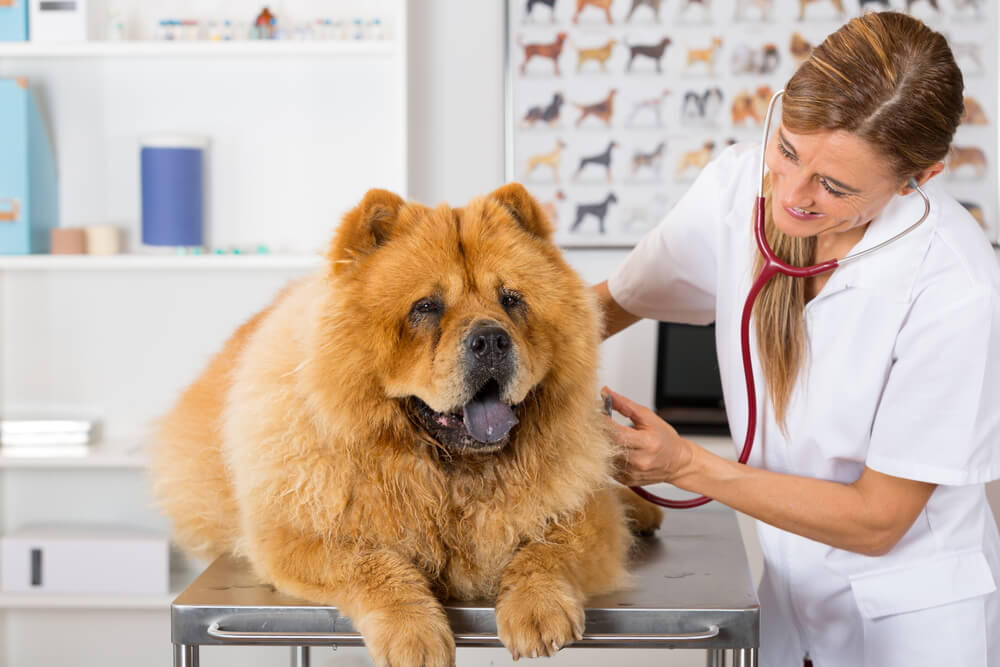
When your Chow Chow is not eating, it is essential to consult a vet as soon as possible.
A lack of appetite can indicate various issues, and a veterinarian will help determine the cause and provide appropriate recommendations to address the situation effectively.
Taking your Chow Chow to the vet can help identify any illnesses that may be affecting their appetite. A professional examination will provide insights into any underlying health concerns that may be causing your pet to avoid food.
Common ailments include stomach disturbances, dental problems, or stress-related issues.
In some cases, your dog’s refusal to eat might be due to pain, such as back or neck injuries. The vet will examine your Chow Chow for any areas of discomfort which might be causing their appetite to wane.
Conditions like intervertebral disc disease (IVDD) are prevalent in dogs and can cause significant discomfort, making it difficult for them to eat.
After identifying the cause of your Chow Chow’s appetite loss, the veterinarian will provide tailored advice on how to manage the situation and help your pet return to their normal eating habits.
This may involve adjusting your dog’s diet, introducing an appetite stimulant, or administering medications to alleviate pain or treat underlying health issues.
Addressing your Chow Chow’s eating habits early is crucial for their overall health and well-being.
Always consult a veterinarian if you notice any sudden changes in your pet’s appetite or behavior to ensure they receive the proper care and attention they need.
Frequently Asked Questions
Why isn’t my Chow Chow eating or drinking?
There could be several factors contributing to your Chow Chow’s lack of appetite, including medical issues ranging from oral diseases like stomatitis or gingivitis, dental problems, gastrointestinal issues, or other illnesses such as heart disease and cancer.
It is essential to monitor your dog’s behavior and consult with a veterinarian if the issue persists.
What can I do to encourage my Chow Chow’s appetite?
To encourage your Chow Chow’s appetite, you can try offering a variety of food options, including different flavors, textures, and temperatures. Additionally, warming the food slightly can help increase its scent and make it more appealing.
Maintain a schedule for feeding times and always provide fresh water. Make sure to consult your vet for any specific recommendations regarding your dog’s diet.
When should I worry about my Chow Chow’s eating habits?
If your Chow Chow refuses to eat or drink for more than 24 hours or is experiencing other symptoms such as vomiting, diarrhea, weight loss, or lethargic behavior, it is crucial to contact a veterinarian as soon as possible.
Prolonged fasting or reduced food intake can lead to serious health complications.
Is it normal for a Chow Chow to be a picky eater?
Chow Chows can sometimes be picky eaters due to their independent and stubborn nature.
However, if your dog suddenly becomes a selective eater, it is important to monitor their overall health, and a veterinary consultation is recommended to rule out any potential health concerns.
Why is my dog not eating but behaving normally?
If your dog is not eating but behaving normally, it could be due to a minor issue or simply a case of being a picky eater.
Nevertheless, if this behavior persists, it is important to consult with a veterinarian to rule out any underlying health concerns.
How can I cater to my Chow Chow’s selective eating preferences?
To cater to your Chow Chow’s selective eating preferences, consider offering a variety of food options with different flavors, textures, and temperatures. You may also want to try introducing new foods gradually and in small portions, giving your dog time to adapt to and explore different tastes.
Always consult with a veterinarian for specific dietary recommendations tailored to your dog’s needs.
